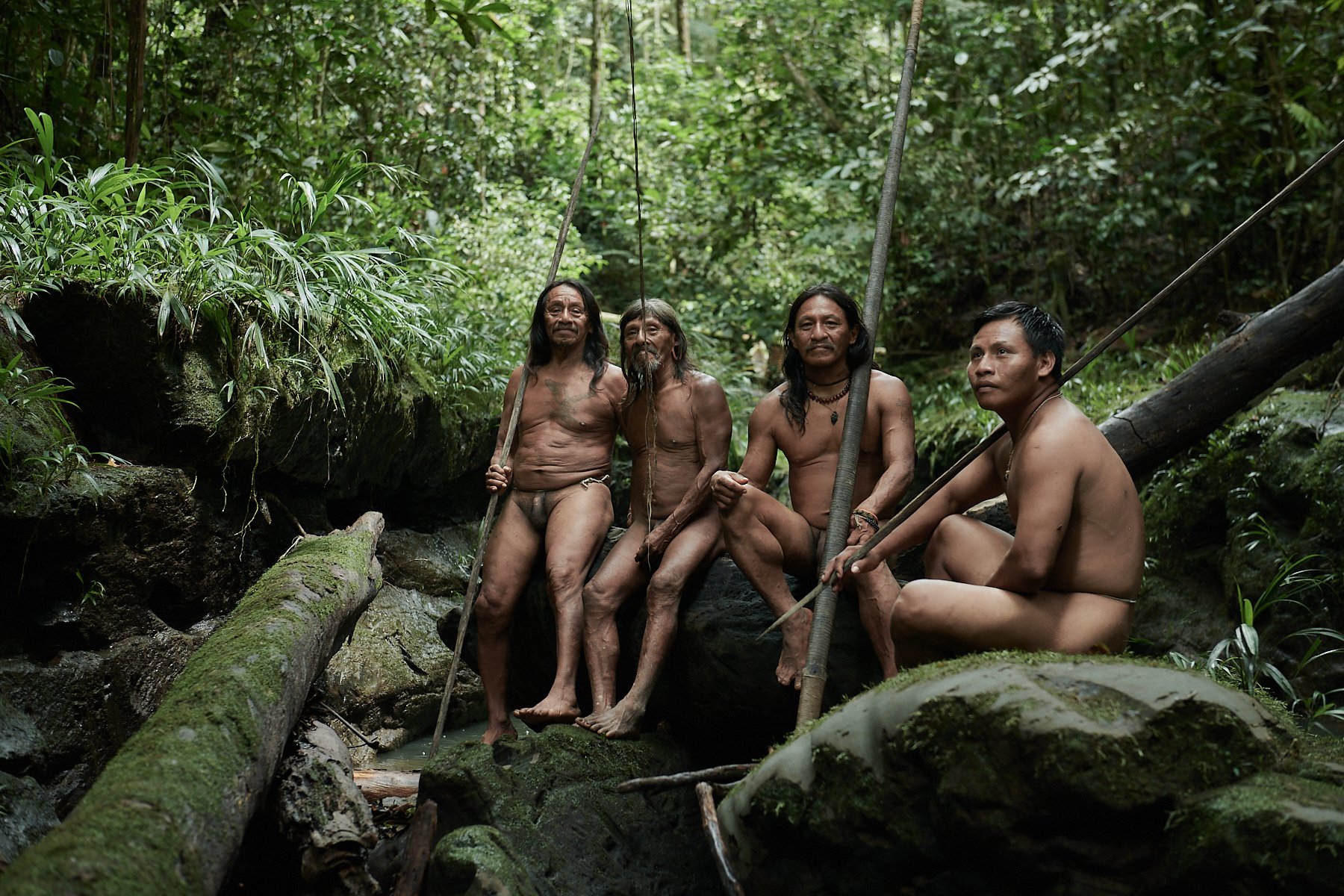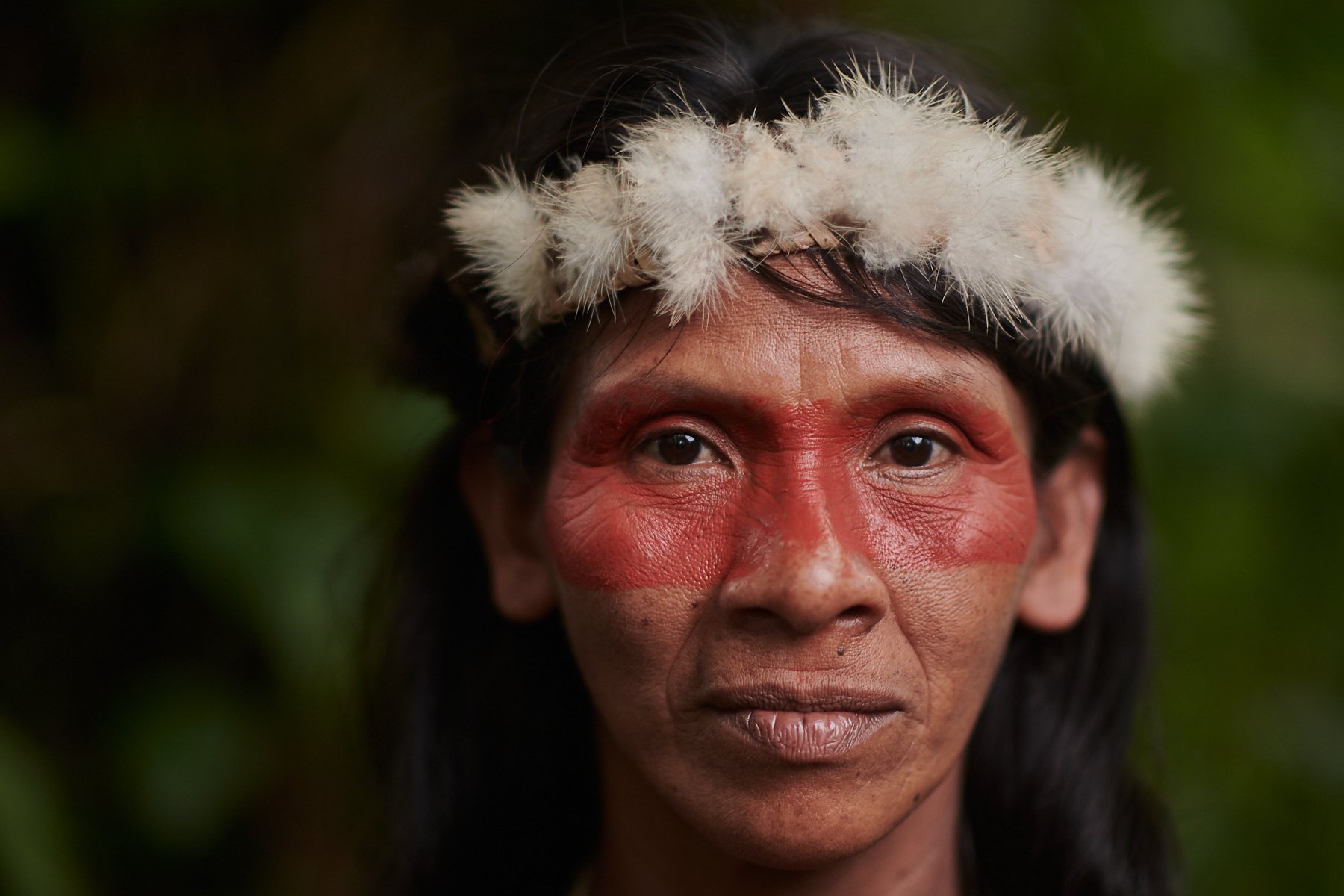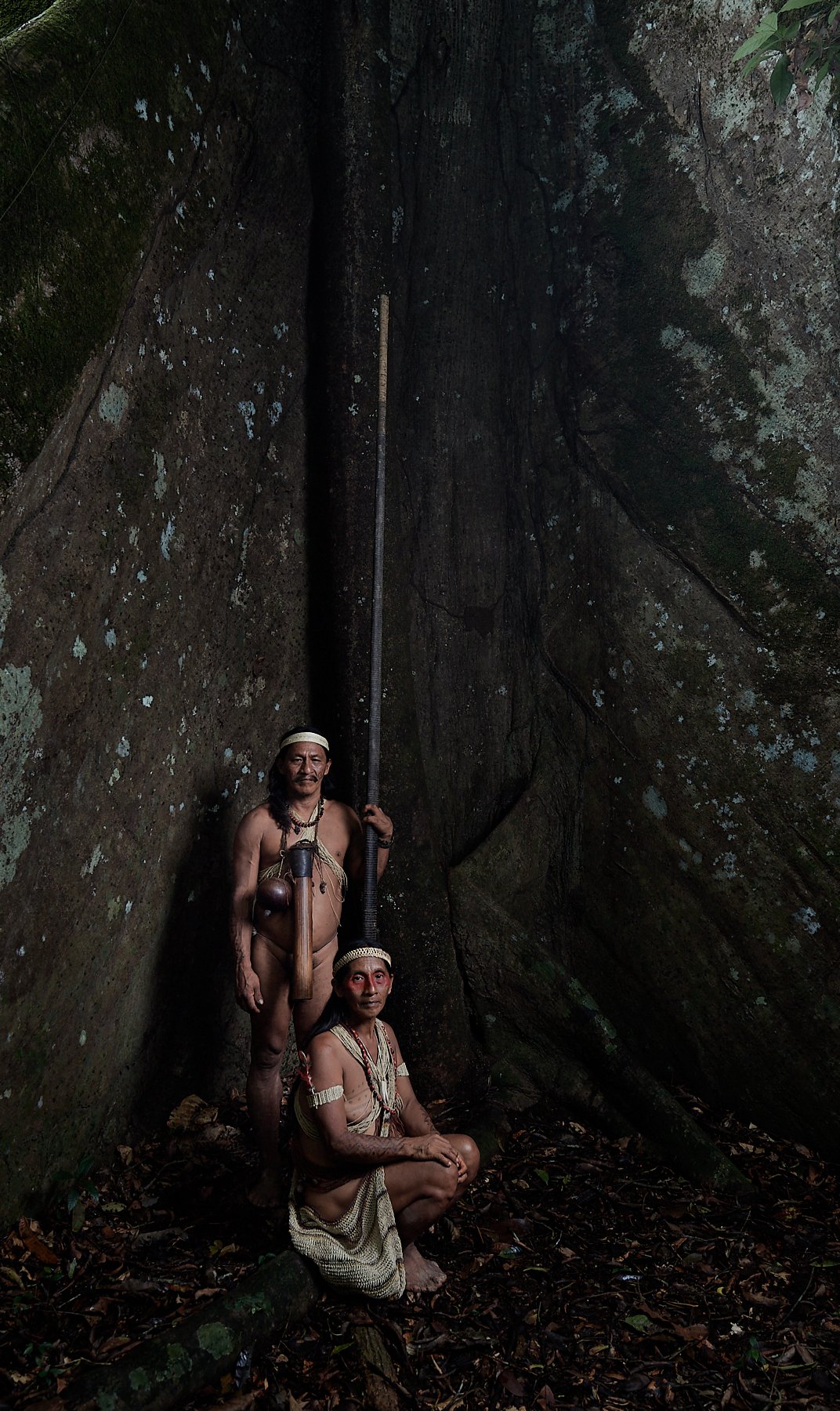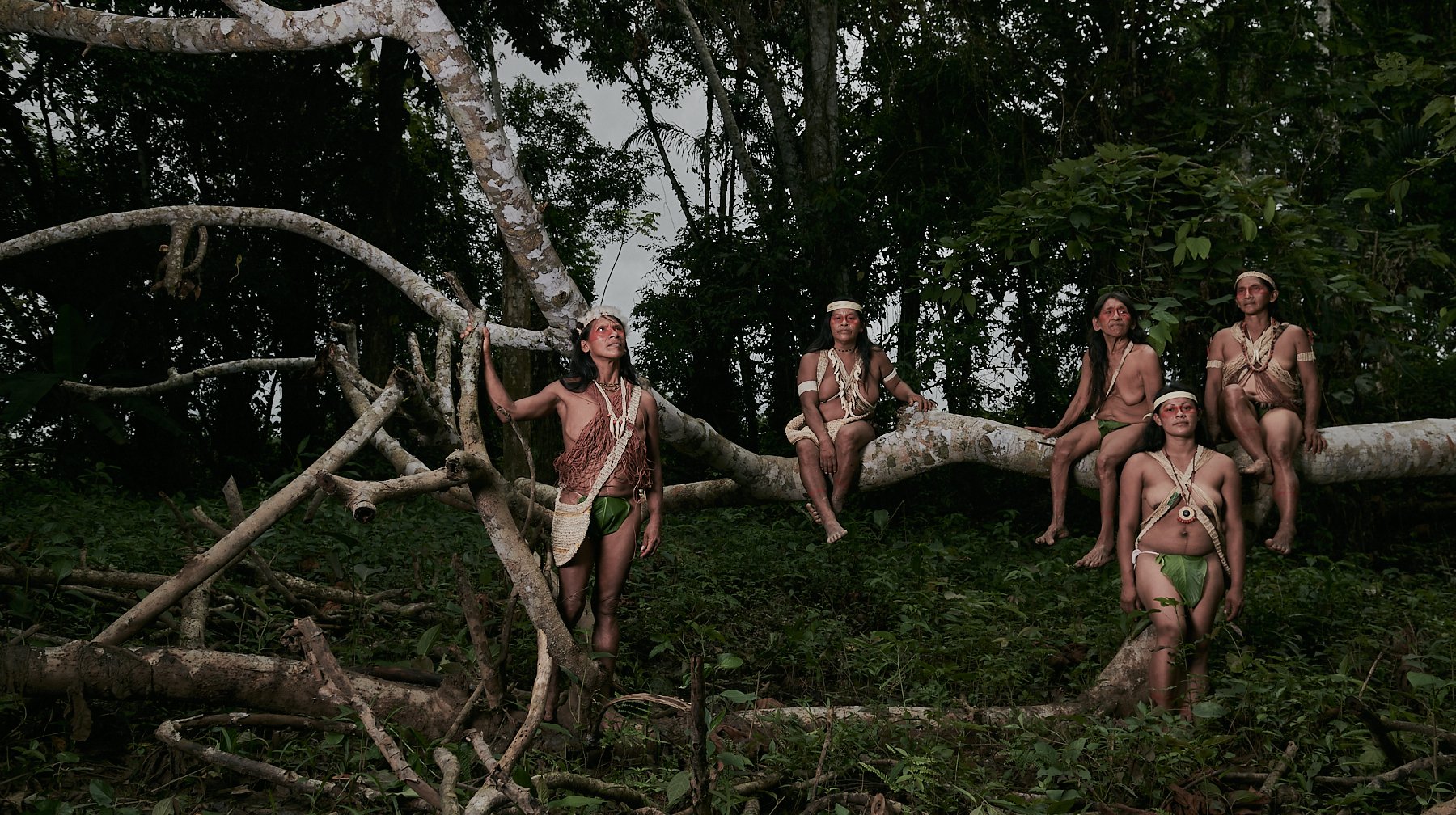Huaorani - fighting for their birthright
Guardians of the jungle - the team of Huaorani warriors and hunters patrolling the jungle against illegal loggers and oil prospectors
If there’s ever been an overused expression is “native people fighting to maintain their birthright” - it’s been used native people of the world - the indigenous people of Australia, North American Indians, the myriads of African tribes and, of course, the Amazonian native tribes. Thousands of articles have been written about their plight and struggles, myriads of fundraisers and protests have secured and subsequently squandered billions of dollars (in financial, reputational, goodwill and even attention capital). The result? Unfortunately (but unsurprisingly) very little. So little in fact that if one were to perform a non-emotional, historically and culturally removed analysis, they could only arrive at one conclusion: there’s no point in this - certainly not for the native people.
Now, we can argue ‘till the cows come home of why that is and that things would have been worse without all the effort, but in reality none of the efforts seem to acknowledge one fundamental fact: the world will never go back. This is now how the world - how people - works. “Progress” (such as it is) never, ever, stops and never goes back - it always moves forward and our hope is that somewhere along the line it chooses a more sustainable path.
This is why the land grabs in North America during the 1800s never stopped - this was not about displacing the indians, it was about a growing nation needing land for crops and livestock. The Amazon is being decimated not because the various Brazilian governments hate trees - it’s because we ALL love our teak garden furniture, the cherrywood countertops and a billion other consumer things. Africa is not being exploited because Chinese and other companies have an excess of cement and tarmac or are stockpiling mercury and cadmium - it’s because everyone in the world’s largest economy - and that’s California by the way - wants a Tesla. Trying to stop this is like standing before a tsunami with your arms outstretched and hoping that’ll stop it.
Why am I saying all this? Obviously not because I don’t believe something has to be done - because it does. The cultural heritage and memories we are killing every single day are absolutely irreplaceable. I’m writing this because maybe it’s time we rethink our approach - not go against the tsunami but try and divert it, make it useful. And the Huaorani of southern Ecuador might just have a really good idea.
First of all, a few words about the Huaorani of the Bameno community. If you’re expecting to find a long forgotten tribe in the middle of nowhere, you’re not going to find it there. Yes, they are a thousand miles from anywhere, they have electricity for 1hr a day, almost no modern conveniences, but they are anything than primitive. They have acknowledged progress, identified what the threats to their lives are and are working in new and novel ways to fight them. But, first things first.
Waika, the spiritual leader of the Huaorani
To get there you can either fly in (short but expensive) or go by car and boat (extremely long but cheap). This means it takes a certain amount of dedication and patience which means, thankfully, only serious visitors make their way there. While this may sounds like a not-so-sound marketing strategy for the Huaorani, it really is not. You see, they have made a conscious choice to attract visitors who can help support and further their cause - journalists, professional photographers, serious environmentalists etc. This is not a place for instagram influencers seeking a quick snap or for families or even, frankly, for casual tourists. There are many luxury lodges and “cultural experiences” less than an hour from civilisation which cater specifically to these groups and, let me tell you, they are always full.
Penty (village chief) and Wuani at the roots of a giant (more than 100ft tall) tree
Conditions in Bameno are extremely basic: you get to sleep in an open hut (no aircon or windows), in a hammock or simple mattress under a mosquito net with myriads of bugs crawling all over the place. Food is excellent but again, basic - no buffet or custom orders here and no cold drinks or alcohol (unless you bring it with you), coffee on demand and many of the things tourists usually take for granted. There’s limited hot water only available under conditions and wifi, the bloodline of your average influencer, is available for 1-2hrs a day and even then, it’s not for instagram posting.
Finally, there’s very little to do - if you’re not there to take pictures or immerse yourself in the life of the natives, you will be bored after half a day. But if you’re there to truly learn, you can stay a whole week and never run out of things to do. Again, not a place for families or photogenic spots for selfies - nor is the weather exactly conducive to flowing kaftans and linen pants with sandals!
So, why go there? Why join in the Huaorani’s struggle? Well, you go there because you want to help tell their story - and it’s a story well worth telling, I promise you that - and have a truly incredibly authentic experience.
So, what is their idea? It’s actually brilliant in its simplicity: rather than send do the usual: representatives dressed in their traditional attires to the capital (where they have always been ignored, diminished and dismissed), participate in “cultural” festivals where mostly locals snap forgettable photos on their phones to never see the light of day again or create luxury camps and lodges where tourists can go for 24hrs for the “authentic experience” (and there are some around - I’ll tell you that), they have gone for realism and truth.
What do I mean by this? They have chosen to host people as honorary members of their tribe with all this means:
do not expect a welcoming committee with hot towels and complementary cool refreshing water. People will be there, but you’ll need to carry your own bags through the mud and tall grass and even help with the provisions you will have carried for the village (so carry a heavy or large one at your own risk)
while the tribe may not take you eat what they eat (it’s not a curtesy, it’s a simple matter of stomach ecosystem), you will eat local foods prepared by a member of the tribe. You will eat game they caught the previous couple of days, fish and local produce and that’s it. Servings are sufficient and there are no seconds or “I’m a fruitarian” options - you’re not flexible, you don’t eat.
expect to be asked to join them in their fishing trips and catch your own fish. Of course, nobody will look at your sideways if you do not catch anything, but you should try and help the tribe. The entire party may only catch 10-15 fish, but that’s how it works - the catch is shared among everyone.
offer to help. The tribe needs about a billion things to happen: new roofs, new patches cleared, branches removed and many other things. Help where and when you can - while an unspoken thing, it is in a way expected.
play with the kids. They are incredibly inquisitive, curious and want to meet you and learn about you. Do not ignore them and you will be rewarded - they will show you things you would not see or experience otherwise.
spend time with the leader and his advisors, learn what they’re doing, take notes and get your facts straight. Ask to join them in a jungle walk/patrol. Experience their world first hand.
So, how are you helping them this way - why is it that they do this?
You see, there’s a touch of genius in what the Huaorani are doing. Rather than stick to a past that is already lost, the Huaorani of Bameno have evolved in a lot of ways to make them survive and remain relevant - rather than try and recreate the 19th century for their visitors, they invite them to support their efforts to make it to the 21st and the 22nd and beyond.
The women of the Bameno community
Believe it or not, by spending this time with them, you’re helping them in the only real way you can - any of us can. By seeing who they really are - deep down inside - and how they live, first hand. By seeing what “full concert with nature” really means - not the Sir David Attenborough, late Sunday afternoon documentary documentary special, but a hundred times more real, more touching. You get to see how women help each other in every single thing and how most things are communal as well as personal - how ten people will huddle together to make a net for one family and how then that family will share its catch with everyone - not only those who helped! You get to spend time with the warriors as they prepare the curare in which they dip their arrows and spears - hours of sitting together, laughing and enjoying each other’s company in a meeting 10 times more productive and 100 times less boring than every single business meeting I have ever attended (and I have attended a LOT!)
You get to meet Penty, Ginto, Waika, Wuani, Maira and the kids and connect with them - because even through the language barrier, their entire culture is about acceptance and inclusion, about making friends and about letting the world know them for who they are! You get to share in their laughter but also see the sadness and the fear which shadows their eyes when they speak of the trespasses by logging and oil companies and how they threaten their way of life. You see how the corrupt government officials ignore them and you get to experience, for real, what the world will lose if the Huaorani lose their battle. This is not about charity, environmentalism, ecology or any other of the hundreds of other terms thrown left, right and centre - this is pure and simple about a people. It’s not about the rainforest - you cannot save the trees, you can only save the people who take care of the trees. Why, because trees without the people who care for them will continue to fall - whether you attend 1 or 1000 rallies in London or Washington.
Maira, a young mother, nursing her 1 month old baby
Because this is how you win - today, in the age of social media, if you want people to understand and then share your story, you don’t need them to support this abstract, remote, romanticised image of you in a march 5000 miles away or by picketing an embassy you are most likely never get to see. You need them to support you 17hrs a day by telling everyone they meet how amazing you are, how unique your culture and life is and why they absolutely believe you deserve to live. Once enough people do this, the world will change by virtue of our actions on our daily lives. We may choose to buy other furniture from sustainable forests not because Greenpeace says so, but because you saw Ginto touching with his fingers the giant tree in the Amazon and praying to it. This is what makes it real, not a documentary among 600+ channels.
But this is not all the Huaorani are doing - and by staying there you get to experience it first hand:
the chief is in contact with three international legal firms supporting their case against the logging and petroleum companies at least 3 times a week. During those calls, the entire village switches everything off to ensure their chief has all the electricity and internet he needs. They gather around him in near complete silence, watching and following every word, speaking only when he nods at them or asks a question. And after the call, he always holds a debriefing session.
they encourage you to take as many pictures are you want, the way you want them to better show how they are and how they live. More importantly, WHO they are - this is very important to them and will work with every single photographer to get this. Because they have realised that until the rest of the world - not the environmentalists or the already sensitised populace, but everyone, every single person who browses Instagram and Facebook and their friends and families - learns of who they are and what they do, things will change. So please, take your time, don’t count on “ad hoc” moments and experiences - don’t spray and pray. Think before you shoot, make your image count.
Because this is the only way - it’s not enough for 100k people across the world to know and to “fight” by wearing hemp clothes and living without furniture or recycling everything. We need 200 million people knowing what the companies are exterminating and a further 500m to connect to the people on the ground, sympathise with them so the next time they hear a piece of chilling news, they make the connections and are appropriately incensed and angry. Because that’s what we need - living connections with each of these people otherwise they’re nothing more than a difficult to pronounce village in the middle of nowhere 99.99% of the population will ever visit. We need people who, when inconvenienced by environmental protestors will not be angry their shopping spree is cut short, but understand and sympathise.
Meeting with the Huaorani is a truly incredible experience - it’s not easy to get there, for sure, but there is no way I can recommend it enough. Go there for 3-4 days minimum, don’t short-change yourself. Yes, you can rush toff to your next destination, but the truth is these people are worth your time. Their culture, memories and their role in this world deserve this much more than you can imagine. If you want the details of the how, when etc, you can read all about it here or contact me for more information. Same if you’d like to organise a trip with like minded individuals - I can help.





